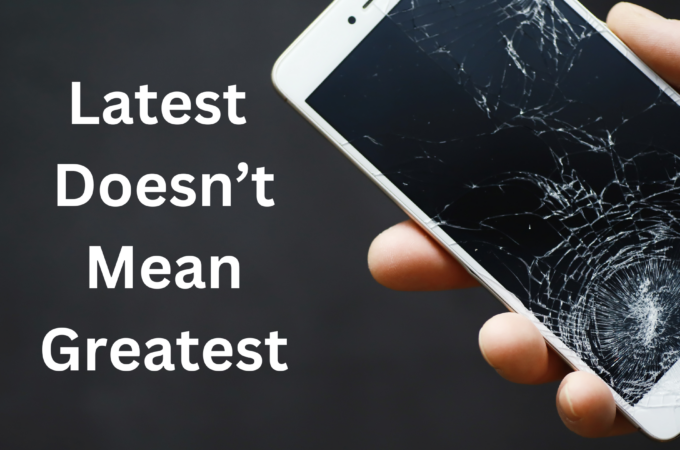My family experienced a laundry emergency last month.
When we moved into our current home back in October, we bought a new washer and dryer to replace the appliances that had been there since the house had existed (around 20 years ago). The dryer wasn’t drying so well anymore, so we decided to buy new appliances that would be more efficient at washing and drying our clothing.
Or, so we thought.
Only a month or so after buying our washer, it stopped draining water correctly. It didn’t happen consistently, so we thought it was just a fluke.
But then a week later, when I went to put a load of clothes in as I normally would, the machine wasn’t able to add water to the clothes at all. We checked the water line– which was fine, so we knew that the problem was in the machine itself.
A repair person came. After replicating the issues, he still wasn’t sure what the actual problem was (though he did have some theories). He ordered multiple replacement parts, hoping one of them would fix the problem.
New Doesn’t Mean Best
My husband and I were somewhat baffled that a brand-new appliance would have so many issues. But this is not a new phenomenon. More and more, we are seeing brand-new products have defects and issues right away, rather than after years of wear and tear.
Another recent example that made headline news was the Alaska Air airplane that had to make an emergency landing 6 minutes into the flight after a window panel ripped off and depressurized the plane. The baffling part? The plane was brand new, and had only been delivered for use in October.
Why is this happening? Well, a big reason is that our products just aren’t built like they used to be. In a nutshell, the priorities around designing products have changed; making a product manufacturable (as in, as inexpensive as possible to produce) and look good has become more important than making sure it actually works well.
Consumer culture constantly tries to convince us that buying the newest thing, or the newest version of a product, will add value to our lives. And sometimes, that’s true. But often these newer products fail to deliver on the promises made to us through advertisements, or can even become dangerous to our well-being (like hoverboards exploding and/or catching on fire).
In short, latest doesn’t always equal greatest. We don’t have to buy into false advertising and buy new things as soon as they’re available, regardless of whether our old product needs replacing. We can wait until the initial product bugs have been worked out, and until we are actually in need of a new product.
A Bible Story About (Not) Buying God’s Power
In The Acts of the Apostles Chapter 8 Jesus’ disciples Peter and John are praying with folks in Samaria, who then receive the Holy Spirit. Simon, a new follower of Jesus, witnesses these powerful prayers– and then an intense conversation occurs:
Now when Simon saw that the Spirit was given through the laying on of the apostles’ hands, he offered them money, saying, “Give me also this power so that anyone on whom I lay my hands may receive the Holy Spirit.” But Peter said to him, “May your silver perish with you, because you thought you could obtain God’s gift with money! You have no part or share in this, for your heart is not right before God. Repent therefore of this wickedness of yours, and pray to the Lord that, if possible, the intent of your heart may be forgiven you. For I see that you are in the gall of bitterness and the chains of wickedness.” Simon answered, “Pray for me to the Lord, that nothing of what you have said may happen to me.”
Acts 8:18-24
Peter’s message is clear: God’s power is not for sale. Simon quickly recognizes his mistake, and asks for prayers as he repents.
Consumer culture can make new purchases sound almost God-like– it’s as if we are buying the divine power to be more beautiful, more productive, more efficient, more successful, etc.
But we cannot buy God’s power. Buying new products will not get us the transcendent attributes that advertisements promise us.
The story in Acts 8 reminds us that God’s power isn’t transactional. It’s a gift given to us by God, unconditionally. No purchase necessary.
How can you, with God’s help, stop the cycle of getting sucked into buying the latest product?
Did you like this post? Check out the Christian Minimalism book!


2 Comments
Susan Goldsmith
February 5, 2024 - 2:52 pmMy Kenmore washer & dryer lasted 22 years! I fixed them a few times myself before finally trading in for newer machines a few years ago that are supposed to be more efficient and weighs the load to use the “correct” amount of water. So far working fine but don’t expect them to last as long as my old ones.
Amber
April 28, 2024 - 8:19 amAww I love this one! So very true! We always talk about this! I have stuff from my Granny like a old RCA radio from the 60s back in the day..and even our old washer n dryer was the best. The new ones don’t wash properly..lol and take twice as long. They made stuff to last back then! It’s now a throw a way world and it shows more every day! Even with houses, cars, and appliances, and stuff. Thank God God’s gift is free and something that is not a throw away but last forever kinda deal! Love it! Thank you for sharing!